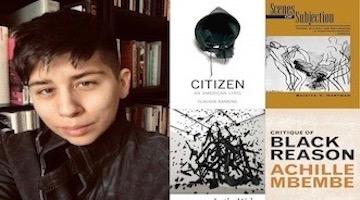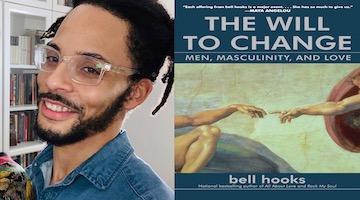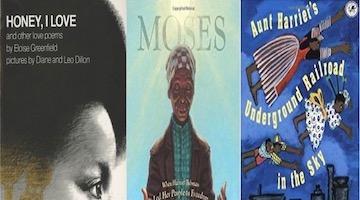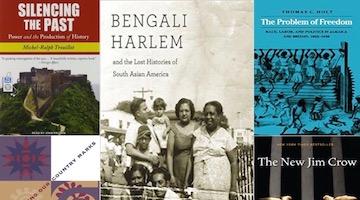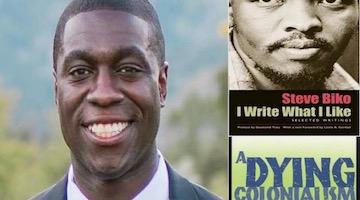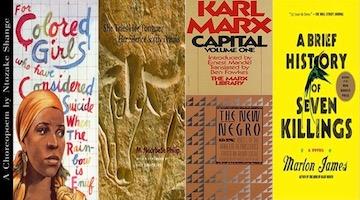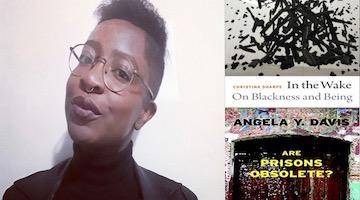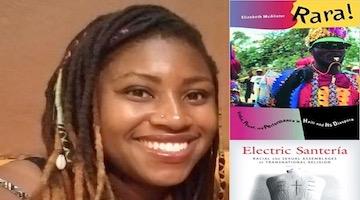Students of all ages can share the experiences of women from the slum margins of Nairobi and young female shapeshifters at a Detroit homeless shelter.
“Students often compare the lives and experiences of women in Kibera on one hand, and those who reside in the Fresh Start Shelter on the other.”
In this feature, we ask educators to list books they most enjoy teaching in their communities. Contributors include professors, graduate students, artists, journalists, organizers, activists, and other community leaders. Readers of the Black Agenda Report understand that the university classroom isn’t the only place where learning happens. Submissions therefore include lists of books that are taught at community workshops, mosques, churches, prisons, libraries, the local preschool, or even a weekly book study on one’s front porch. This week’s contributor is Nada Mustafa Ali.
Teaching, and learning, in and outside the classroom, is a lifelong passion for me. In this essay I share insights about only a handful of the books I enjoy teaching. There are many others, but I can only mention five here.
The Light of the World, by Elizabeth Alexander. (Grand Central Publishing, 2016).
I read this book, and then started teaching it after attending a conversation between Elizabeth Alexander and Alondra Nelson at the National Women’s Association’s (NWSA) meeting in 2018. Alexander’s and Nelson’s books were available at the book exhibit hall at the conference, so I picked up this book, along with an illustrated book of the author’s Praise Song for the Day, the poem she recited at President Obama’s inauguration in 2008, for my daughter. In case you are wondering, I also picked Alondra Nelson's The Social Life of DNA: Race, reparations, and reconciliation after the genome (Beacon Press).
The Light of the World is the author’s tribute and memoir about her life with and the loss of her husband Ficre Ghebreyesus. The book is a joy to read. An exquisite piece of creative non-fiction, it is one of a few books that I wished I read earlier in life – because, even though it is about loss, it is also about living, loving, building a family, and being productive at the same time. In that sense, it contains insights that can help students in my Advanced Topics in Human Rights capstone course I teach, think about life beyond college.
Importantly, the book covers the themes of migration and asylum-seeking, political developments in the Horn of Africa, and US history. Alexander’s late husband was born in Eritrea. He left his country of origin at a young age, and sought political asylum to escape violence, war, and persecution in his country of origin under the rule of former dictator Mengistu Haile Mariam. Ghebreyesus traveled to the US through Sudan, Italy, and Germany. In the US, he owned an Eritrean restaurant, studied art and became an accomplished artist, and built a meaningful life and family, while also contributing to his home country. The book thus enables class discussion on political repression and persecution, the politics of memory, ‘forced’ migration, and what refugees contribute to the US, in light of ongoing political debates about refugees and migrants in the US.
“The book enables class discussion on political repression and persecution.”
The book offers an opportunity to discuss politics, society, culture in the Horn of Africa. I assign scholarly articles about forced migration in East Africa and introduce students to Eritra. We also read excerpts from slave narratives. I pair the memoir with Haile Gerima’s film Teza, which discusses political repression in Ethiopia (of which Eritrea was part until the early 1990s) under the rule of Mengistu Haile Mariam. Teza is superb. One of my favorite films ever. Among the themes it tackles is Xenophobia and violence against African refugees in Europe. However, in tackling the issue of mixed marriages in Europe, the film includes a story line about African students who had to abandon their families and children in the 1970s upon completing their studies. Gebreyessus provides an alternative example of East African masculinity.
I have recommended this book to various friends and family, and I recently sent a copy to a young Sudanese activist who recently lost her husband.
Women’s Voices from the Margins: Diaries from Kibera, Kenya, by Elizabeth Swart (Canadian Scholars, 2017)
I started teaching Women’s Voices from the Margins once it came out in 2017, in my Gender in Global Context course. The book is based on an analysis of diary entries by twenty women who live in Kibera, a slum in Nairobi, the capital of Kenya. Swart contextualizes her research through a discussion of Kenya’s political and gender dynamics, as well as a discussion of the state of women’s human rights in the country. The author uses a methodology that helps reconstruct the voices of women living in Kibera, a slum in Nairobi, into academia, highlighting the agency of these women and the difficult decisions they make in their lives. Swart emphasizes her privilege as a North American scholar (white), and ways this has shaped her relationship with the subjects of her research.
“Women’s Voices from the Margins reconstructs he voices of women living in Kibera, a slum in Nairobi.”
The book is accessible for students enrolled in a 100-level course. It enables discussions on gender, social class, political violence, and women’s human rights in Kenya. It enables an engagement with the theory of intersectionality—a key focus in this course—in a global South setting. In their reflections on the book, students often state that they feel privileged to be based in a global North setting, and not to live in a slum like Kibera. But I show slides of modern different Nairobi and Kenya, pointing to structural inequalities in the country. I lecture on the role of the women’s movement in Kenya, or show the students excerpts from a documentary on the life and political struggles of Kenyan political activist and Nobel Prize Laureate, the late Wangari Mathai. Starting in 2018, I also started teaching Shapeshifters, an ethnography that analyses the experiences and restores the voices of young women living in a homeless shelter in Detroit in the same course. I discuss this book below.
Shapeshifters: Black Girls and the Choreography of Citizenship, by Aimee Meredith Cox (Duke University Press, 2015).
Cox’s book engages with the ways Black women living in the United States “engage with, challenge, invert, unsettle, and expose the material impact for systemic oppression,” according to Cox. The author chronicles and analyses the experiences of young women who inhabit a shelter in Detroit. She also highlights young women’s resistance strategies through art, including dance, poetry, story-telling, and through other creative means. While some students often spend extra time reading the book, given its complex vocabulary, others appreciate the author’s powerful use of language. Some students reflect on ways they relate to the themes of the books and to the experiences of girl residents of the Fresh Start Shelter (pseudo). One of my students wrote
“Shapeshifters is one of the most powerful works I have read in my college career, and it has much to do with the language author Aimee Meredith Cox provides in describing the experience of Black Girls in America. Having my own history with similar struggles to those mentioned the book throughout my life, I was able to relate to the Brown family and the stories from Fresh Start; and it allowed me to see that [these] … experiences … have lead me to where I am today.”
Students often compare the lives and experiences of women in Kibera on one hand, and those who reside in the Fresh Start Shelter on the other. Kristian Patrick Courtney, for example, wrote,
“I thoroughly enjoyed Cox's Shapeshifters, as a new student to gender studies, it [offered] me a reference and easily digestible glossary of feminist terms and tropes. …[I was able to] to contrast and compare [the experiences of girls in urban Detroit who resided in Fresh Start] with the stories and situations [in] Swart's study of Kibera. … Both [groups of women] face poverty and violence as a matter-of-fact in everyday life, both have coping strategies to 'keep your head up' (although these strategies are different), both have been failed by their local and national governments, and both seek greater opportunity for education and representation.”
The book enables discussions around intersectionality, and around the #Black Lives Matter and #Say Her Name campaigns.
Bananas, Beaches and Bases: Making Feminist Sense of International Politics, by Cynthia Enloe (Berkley, University of California Press (2nd edition), 2014)
In her engaging epistemological and policy critiques of social science in general, and international politics, Cynthia Enloe invites readers, including students, to develop and exercise genuine feminist curiosity about the lives and experiences of women, and to “follow diverse women into places that are usually dismissed by foreign affairs experts as merely ‘private,’ ‘domestic,’ ‘local’ or ‘trivial.’” Enloe then guides the reader into a discussion and analysis, based on case study, that render “a disco,… someone else’s kitchen, or your closet’” can become arenas for international politics.
The book covers a wide range of themes, as they play out globally, from market-driven globalization’s subjugation of female workers in global South settings, to gender-based violence, to militarization and the exclusion of women from peace-negotiations, to the experiences of ‘base women’, to constructions of masculinity and femininity. Enloe discusses the impact of all this on diverse women, and how women in different parts of the world have organized and resisted subordination. The book has worked well as the main textbook for the Gender in Global Context course I mention above. There is a plethora of documentaries, international human rights conventions, and readings that would work well with the book. For example, in my discussion of the violations of the rights of women workers in the garment industry in Bangladesh, I assign the chapter on women’s labor. I also assign the documentary The Hidden Face of Globalization (by the Institute for Global Labor and Human Rights, 2003), which also focuses on the rights and experiences of women in the garment industry in Bangladesh.
“Women in different parts of the world have organized and resisted subordination.”
How Europe Underdeveloped Africa, by Walter Rodney (Bogle-L'Ouverture Publications, London and Tanzanian Publishing House, Dar-Es-Salaam, 1972)
I first read Walter Rodney’s How Europe Underdeveloped Africa as an undergraduate at the University of Khartoum in Sudan. Our professors assigned chapters from this classic, along with chapters from Fanon’s The Wretched of the Earth and Amilcar Cabral’s Return to the Source. I assign excerpts from the book in my Women in African Cultures course, as it helps students move beyond descriptive introductions to the continent and descriptions of the impact of underdevelopment in African countries on women, to asking why countries in the continent are underdeveloped, and the role colonialism played in this process of underdevelopment.
How Europe Underdeveloped Africa is a 1972 book written by Walter Rodney that takes the view that Africa was deliberately exploited and underdeveloped by European colonial regimes. One of his main arguments throughout the book is that Africa developed Europe at the same rate as Europe underdeveloped Africa.
Rodney undercovers the impact of colonial capitalist exploitation of African countries, including how it engrained the economic and political structures, institutions, and power relations that undermined Africa’s economic and political development in the 20th Century. Rodney does not absolve ruling elites from responsibility. While it is important to read this classic in light of global geopolitical changes, and with reference to recent critical approaches in development studies as a field, the analysis in the book usually sets the stage for deeper discussions on culture, power, and gender inequality in the continent.
Nada Mustafa Ali is a scholar, practitioner and an activist whose scholarship spans the fields of comparative politics, women's, gender, and feminist studies, development studies, and African and Middle Eastern studies. She has written extensively in both English and Arabic. She is the author of Gender, Race and Sudan Exile Politics, and of numerous book chapters, journal articles, and academic and policy reports. Nada is a Fellow of the Rift Valley Institute, and an Advisory Board Member of the African Feminist Initiative.
COMMENTS?
Please join the conversation on Black Agenda Report's Facebook page at http://facebook.com/blackagendareport
Or, you can comment by emailing us at comments@blackagendareport.com



